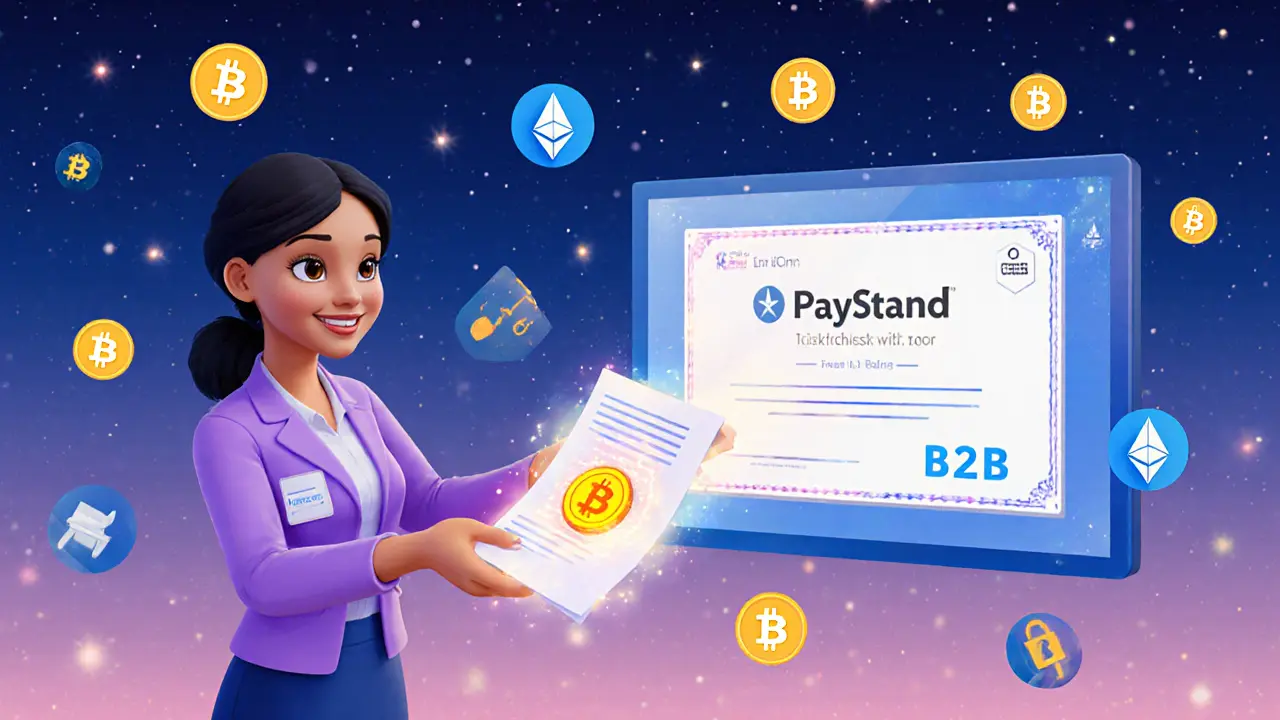BaaS Provider Comparison Tool
Find the best Blockchain as a Service provider for your project by selecting your requirements below.
Searching for providers that match your requirements...
Matching Providers
By 2025, if you're building a blockchain-powered app, managing digital assets, or embedding smart contracts into your business, you don't need to run your own nodes or hire a team of blockchain engineers. That’s the whole point of Blockchain as a Service (BaaS). It’s like renting a server, but instead of hosting a website, you’re hosting a blockchain network-without the headaches of consensus algorithms, node maintenance, or security patches.
Companies that used to spend months setting up Ethereum or Hyperledger networks now deploy them in days. Some even do it in hours. The shift has been dramatic. In 2020, only big banks and tech giants could afford blockchain infrastructure. Today, startups, fintechs, and even small retailers are using BaaS to tokenize assets, track supply chains, or verify identities-all without touching a single line of blockchain code.
What Blockchain as a Service Actually Does
Blockchain as a Service gives you ready-made access to blockchain networks through the cloud. Think of it as AWS for blockchains. Instead of installing software, configuring miners, and monitoring peer-to-peer connections, you log into a dashboard, pick your chain-Ethereum, Polygon, Bitcoin, or Hyperledger-and click deploy.
BaaS handles everything behind the scenes: node synchronization, network security, API endpoints, smart contract deployment tools, and even monitoring dashboards. You focus on your app. They handle the blockchain.
Most BaaS providers let you choose between public blockchains (like Ethereum) and private ones (like Hyperledger Fabric). Public chains are great for transparency and decentralization. Private chains are better for enterprises that need control, privacy, and compliance.
Leading Blockchain BaaS Providers in 2025
Eight providers dominate the enterprise blockchain space in 2025. Here’s who’s leading and why.
Rapid Innovation
Rapid Innovation is the go-to for startups and mid-sized companies that need speed and affordability. Their biggest selling point? A 90-day deployment guarantee. If your blockchain app isn’t live in three months, they refund you. That kind of confidence is rare in this space.
They specialize in AI-driven Web3 tools, making it easy to connect smart contracts to machine learning models-like predicting token demand or detecting fraud on decentralized exchanges. Their pricing starts at $0.15 per hour for a basic node, making it one of the cheapest options on the market.
Kaleido
Kaleido is the enterprise favorite. It supports multiple blockchain protocols-Ethereum, Hyperledger, Corda, and more-all in one platform. If your company needs to run a private chain for internal audits while also interacting with a public chain for customer-facing tokens, Kaleido handles both.
It’s used by Fortune 500 companies in logistics, healthcare, and finance. Its built-in compliance tools automatically log every transaction for regulators. The interface is complex, but that’s because it’s built for teams that need granular control over permissions, consensus rules, and data privacy.
BlockApps
BlockApps is all about Ethereum. If you’re building on Ethereum and want to avoid the mess of managing your own RPC endpoints or dealing with gas price volatility, BlockApps is your best bet. Their platform includes a visual smart contract builder, pre-tested templates, and automated testing tools.
They also offer a tokenization engine that turns real-world assets-like real estate or carbon credits-into digital tokens with built-in compliance checks. Many real estate firms in the U.S. and Australia now use BlockApps to fractionalize property ownership.
Bloq
Bloq serves the biggest players: banks, governments, and multinational corporations. They don’t do cheap or fast. They do secure, scalable, and certified. Their clients include the World Bank and several central banks testing digital currencies.
Bloq’s infrastructure is built on hardened nodes with military-grade encryption. They offer full audit trails, hardware security modules (HSMs), and 24/7 dedicated support. If you’re building a blockchain solution that must pass regulatory scrutiny, Bloq is the only choice.
Blockstream
Blockstream isn’t just a BaaS provider-they’re Bitcoin purists. If your project revolves around Bitcoin, not Ethereum or altcoins, Blockstream is your only real option. They offer the Liquid Network, a sidechain that enables faster Bitcoin transactions with privacy features.
They also provide satellite APIs, letting you broadcast transactions via satellite in areas with no internet. That’s critical for humanitarian organizations in remote regions or shipping companies in the South Pacific. Their tools are niche, but unmatched for Bitcoin-native use cases.
Cryptowerk
Cryptowerk doesn’t build blockchains. They build trust. Their service attaches blockchain-based timestamps and hashes to documents, contracts, and digital files. Think of it as a tamper-proof notary service.
Law firms, pharmaceutical companies, and universities use Cryptowerk to prove when a document was created or signed. In 2025, the EU requires all medical records to have blockchain-backed audit trails. Cryptowerk is one of the few providers certified to meet that standard.
tZERO
tZERO is the only BaaS provider focused entirely on capital markets. They help companies issue security tokens-digital shares that comply with SEC regulations. Their platform handles investor onboarding, compliance checks, dividend distributions, and secondary trading-all on a blockchain.
They’ve worked with real estate funds, private equity firms, and even a few startups that raised $50M+ through tokenized equity. If you’re looking to raise money using blockchain instead of traditional venture capital, tZERO is the platform to use.
Paystand
Paystand flips the script. Instead of helping you build a blockchain app, they use blockchain to fix a broken system: B2B payments. Every year, businesses lose billions to late payments, wire fees, and reconciliation errors.
Paystand’s blockchain network connects buyers and suppliers directly, eliminating intermediaries. Payments settle in seconds, not days. Fees? Zero. They’ve cut payment processing costs by 80% for clients in manufacturing and wholesale distribution. If your business sends invoices to other companies, Paystand is the most practical blockchain tool you’ll find.

How to Choose the Right BaaS Provider
Not all BaaS is created equal. Here’s what actually matters when picking one in 2025:
- Which blockchain do you need? Ethereum? Bitcoin? Hyperledger? Pick a provider that supports your chain-not one that pushes you into their favorite.
- Do you need compliance? If you’re in finance, healthcare, or government, look for providers with built-in KYC, audit logs, and regulatory certifications.
- How fast do you need to deploy? Rapid Innovation and BlockApps can get you live in days. Bloq and Kaleido take weeks.
- What’s your budget? Paystand and Rapid Innovation offer pay-as-you-go pricing. Bloq and tZERO require enterprise contracts.
- Do you need support? If you’re not a blockchain expert, choose a provider with 24/7 live support-not just a ticket system.

What’s Next for BaaS in 2025 and Beyond
The biggest trend isn’t more blockchains-it’s smarter integration. BaaS providers are now embedding AI directly into their platforms. For example, some can auto-suggest optimal gas fees, predict smart contract bugs before deployment, or even generate code from plain English prompts.
Another shift: BaaS is becoming part of larger platforms. AWS and Microsoft Azure now offer their own blockchain services. But they’re not beating the specialists. Instead, they’re partnering with them. You’ll soon see AWS Amplify offering a one-click deploy to Kaleido or Firebase integrating with Paystand for payments.
For small businesses, the barrier to blockchain is gone. You don’t need a CTO or a dev team. You just need a clear use case and a BaaS provider that matches your goals.
What’s the difference between Backend as a Service and Blockchain as a Service?
Backend as a Service (BaaS) helps you manage servers, databases, and user authentication for apps-like Firebase or Supabase. Blockchain as a Service gives you access to blockchain networks-like Ethereum or Hyperledger-without running nodes. They solve different problems: one is for app backends, the other is for decentralized infrastructure.
Can I use BaaS for cryptocurrency projects?
Yes, absolutely. Most BaaS providers support public blockchains like Ethereum, Polygon, and Bitcoin. You can build wallets, NFT marketplaces, DeFi apps, or tokenized loyalty programs. Providers like BlockApps and Rapid Innovation are optimized for crypto use cases.
Is Blockchain as a Service secure?
It’s often more secure than running your own nodes. Leading BaaS providers use enterprise-grade encryption, multi-signature wallets, hardware security modules, and regular audits. They also patch vulnerabilities faster than most companies can. But security still depends on how you use it-poorly written smart contracts can still be hacked.
Do I need to know how to code to use BaaS?
Not always. Providers like BlockApps offer visual smart contract builders. Paystand and Cryptowerk let you use pre-built templates without writing code. But if you want to customize your blockchain logic or build complex apps, you’ll need to know Solidity or another blockchain language.
Which BaaS provider is best for small businesses?
Rapid Innovation is the top pick for small teams. It’s affordable, fast to deploy, and has clear pricing. Paystand is great if you’re dealing with B2B payments. Cryptowerk works well for document verification. All three offer free tiers or trial periods so you can test before committing.
Are there free BaaS options?
Yes. Rapid Innovation and BlockApps offer free tiers for testing. Supabase and Appwrite (which are Backend as a Service) also have free plans, but they don’t support blockchain. For true blockchain BaaS, free tiers are limited to small-scale testing-usually 100 transactions or 10 GB of storage per month.
Next Steps
If you’re ready to try BaaS, start here:
- Define your use case: Are you tokenizing assets? Automating payments? Verifying documents?
- Choose your blockchain: Ethereum for DeFi, Bitcoin for payments, Hyperledger for enterprise privacy.
- Compare providers based on cost, speed, and compliance needs.
- Sign up for a free trial-most offer one.
- Build a simple prototype in a weekend. Test it. Iterate.
You don’t need to be a blockchain expert anymore. The tools are here. The networks are stable. The question isn’t whether you should use BaaS-it’s what you’ll build with it first.




15 Comments
Jenny Charland
Why is everyone acting like BaaS is some revolutionary breakthrough? I’ve seen this exact same hype cycle with cloud computing, AI, and even SaaS. It’s just outsourcing your problems to someone else’s server. And don’t get me started on how many of these ‘enterprise solutions’ are just rebranded APIs with a blockchain sticker on them.
Caren Potgieter
I’m from South Africa and we’re starting to use BaaS for small farmer cooperatives to track organic certification. No code needed. Just a phone and a QR code. It’s not flashy but it works. Real change doesn’t need a demo reel.
jocelyn cortez
I’ve used BlockApps for a community art token project. Simple, clean, no drama. The visual builder saved us months. If you’re not a dev, this is your gateway. Don’t let the jargon scare you off.
stuart white
Let’s be real - if you’re using anything other than Bloq, you’re playing with fire. These startups think they can ‘deploy in days’? Bro, the blockchain isn’t a WordPress plugin. Bloq’s infrastructure has more security layers than the Pentagon’s email server. Everything else is just a glorified sandbox.
Lisa Hubbard
Look, I read the whole thing. It’s long. It’s detailed. It’s probably accurate. But I still don’t get why anyone would care. Blockchain for invoices? Tokenized carbon credits? Are we just inventing problems to solve with tech so we can feel smart? I’m just here for memes and cat videos.
Tejas Kansara
Paystand changed how we handle vendor payments in India. No more 45-day delays. Zero fees. Just instant settlement. This isn’t crypto hype - it’s real business logic. If you’re still using wires, you’re wasting money.
Linda English
I appreciate how thorough this breakdown is - truly. But I wonder if we’re missing the bigger picture: Are we building these systems to empower people, or to centralize control under a new set of corporate gatekeepers? The language here is all about ‘deployment,’ ‘enterprise,’ and ‘compliance’ - but where’s the conversation about accessibility, equity, and community ownership? The tools are here, yes - but who gets to use them, and who gets left behind?
Matthew Prickett
Did you know that Rapid Innovation is owned by a private equity firm that also owns three data brokers? And Bloq? They’re backed by a defense contractor that helped build the NSA’s surveillance stack. This isn’t decentralization. It’s blockchain-washing. They’re selling you a myth so you’ll pay for their infrastructure while they quietly monetize your data. Wake up.
Anne Jackson
Okay but what about the energy use? Everyone’s acting like this is clean tech. Nope. Every time someone deploys a node on Ethereum via BaaS, it’s still burning power. And don’t even get me started on how many of these ‘compliance tools’ are just ways for the government to track your every transaction. This isn’t freedom - it’s surveillance with a blockchain logo.
Sky Sky Report blog
The article presents a balanced view of the market. Each provider serves a distinct need. The key is matching the tool to the problem, not chasing trends. This is not about technology for technology’s sake - it’s about solving real operational inefficiencies.
asher malik
It’s funny how we treat blockchain like it’s magic when it’s just a distributed ledger. The real innovation isn’t the tech - it’s the shift in mindset. We used to trust institutions. Now we’re learning to trust protocols. That’s the quiet revolution. Whether you use Kaleido or Paystand doesn’t matter - what matters is that you’re no longer forced to believe someone else’s word.
Tyler Boyle
Let’s cut through the noise. The article lists eight providers, but only three are actually viable long-term: Bloq, Kaleido, and Paystand. Rapid Innovation? They’re a VC-funded bubble. BlockApps? Great for Ethereum purists, but they’re locked into one chain. Blockstream? Cool for Bitcoin maximalists, but irrelevant to 95% of enterprises. Cryptowerk? Niche. tZERO? Only for securities. And don’t even get me started on how ‘AI-driven Web3 tools’ is just marketing speak for ‘we auto-fill your smart contract with GPT-4.’ The real winners are the ones that solve actual workflow problems - not hype problems. Also, AWS and Azure aren’t partnering with them - they’re quietly building their own internal versions and will kill these players in 18 months. You’re welcome.
Gus Mitchener
From a systems architecture standpoint, BaaS abstracts consensus mechanisms and peer discovery into managed services - effectively commoditizing the infrastructure layer of decentralized networks. This aligns with the broader trend of infrastructure-as-code and platformization of distributed systems. However, the implicit assumption that ‘no coding required’ equates to democratization is flawed - it merely shifts the cognitive load from protocol engineering to API governance and compliance ontology design. The real barrier to entry is not technical literacy, but epistemic authority: who controls the trust layer?
Rajesh pattnaik
As someone from India, I’ve seen how BaaS helps small artisans prove authenticity of handmade goods. No middlemen. No fake certificates. Just a QR code that shows the whole journey. Tech should serve people - not the other way around. This is what real innovation looks like.
Amanda Cheyne
They’re all lying. Every single one. BaaS isn’t about convenience - it’s about control. The government is using these platforms to track every transaction, every asset, every token. That’s why they’re pushing ‘compliance’ so hard. They don’t want decentralization - they want a blockchain-powered surveillance state. And you’re all just signing up for it because it’s ‘easy.’ Wake up. The blockchain was supposed to be free. Now it’s just another corporate loyalty program with a ledger.